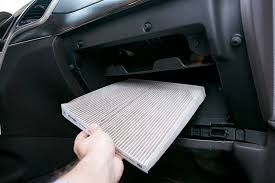The Impact of Weather on Car Batteries
Tips For All Seasons

Car batteries are crucial for starting your vehicle and powering electrical systems, but did you know that weather conditions can significantly impact their performance? Understanding how temperature extremes affect your battery can help you maintain its health and extend its lifespan. In this blog, we’ll explore the effects of various weather conditions on car batteries and provide you with practical tips for all seasons.
How Weather Affects Car Batteries
Cold Weather
When temperatures drop, your car battery’s efficiency can plummet. Here’s why:
- Increased Resistance: Cold temperatures slow down the chemical reactions inside the battery, reducing its ability to generate power. A fully charged battery at 80°F can lose up to 35% of its power at 0°F.
- Higher Demands: Cold weather increases the demand for battery power as your engine requires more energy to start, and you often use heating systems and defrosters.
Hot Weather
Heat can be just as detrimental to battery health:
- Accelerated Aging: High temperatures can cause the battery's fluid to evaporate, leading to internal damage and reduced lifespan. Excessive heat can also increase the risk of corrosion on battery terminals.
- Increased Self-Discharge Rate: Batteries discharge more quickly in hot conditions, which can leave you stranded if the battery isn’t properly maintained.
Humidity and Rain
While not as impactful as temperature, humidity and wet conditions can still affect your battery:
- Corrosion: Moisture can lead to corrosion on battery terminals, which impairs electrical flow and can ultimately lead to battery failure.
- Short Circuits: Excessive moisture can cause electrical components to malfunction or short circuit, affecting battery performance.
Seasonal Tips for Battery Maintenance
Winter Tips
- Check the Charge: Before winter hits, have your battery tested to ensure it’s holding a proper charge. Many auto parts stores offer free battery testing.
- Clean Terminals: Inspect and clean battery terminals and cable connections to prevent corrosion. Use a mixture of baking soda and water to neutralize corrosion.
- Insulate Your Battery: Consider investing in a battery insulation wrap or blanket to help maintain temperature stability.
Summer Tips
- Keep it Cool: Whenever possible, park in shaded areas or garages to protect your battery from extreme heat.
- Regular Inspections: Check the battery fluid levels (if applicable) and replenish with distilled water as needed.
- Watch for Signs of Damage: Look for bulging or swelling in the battery case, which can indicate heat-related damage.
Year-Round Tips
- Drive Regularly: Regular driving helps keep the battery charged and in good condition. If you’re not using your vehicle often, consider a battery maintainer or trickle charger.
- Monitor Performance: Pay attention to how your car starts. If you notice sluggish starts or dimming lights, it may be time for a battery check.
- Professional Maintenance: Schedule routine maintenance with a professional to ensure your battery and vehicle are in optimal condition.
Conclusion
Weather conditions play a significant role in the performance and longevity of your car battery. By understanding these effects and implementing seasonal maintenance tips, you can keep your battery healthy throughout the year. Regular checks and preventive care can save you from unexpected breakdowns, ensuring your vehicle runs smoothly no matter the weather.
Stay proactive, and your car battery will thank you!





